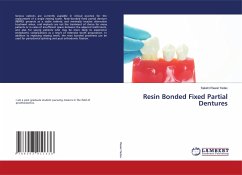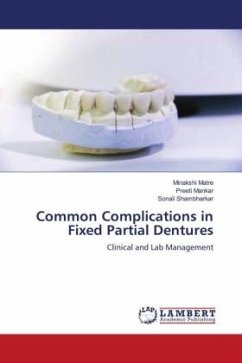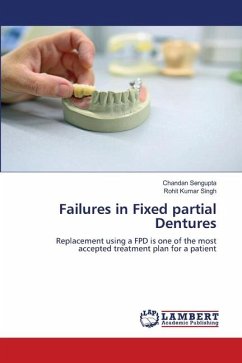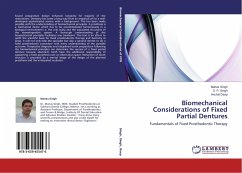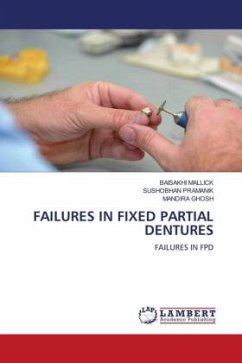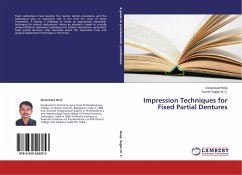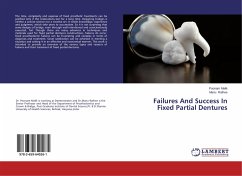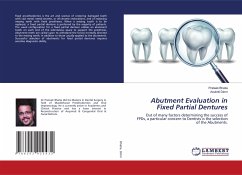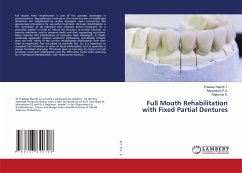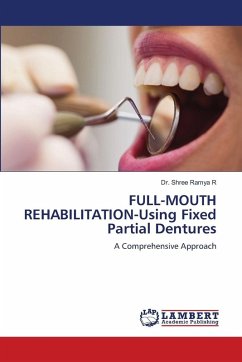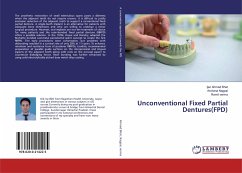
Unconventional Fixed Partial Dentures(FPD)
Versandkostenfrei!
Versandfertig in 6-10 Tagen
47,99 €
inkl. MwSt.

PAYBACK Punkte
24 °P sammeln!
The prosthetic restoration of small edentulous spans poses a dilemma when the adjacent teeth do not require crowns. It is difficult to justify extensive reduction of the adjacent teeth to support a conventional fixed partial denture. A single-tooth implant is an alternative for patients with adequate bone dimensions and who are willing to undergo a minor surgical procedure. However, oral implants are not the treatment of choice for many patients and the resin-bonded fixed partial denture (RBFPD) offers a possible solution. In the 1970s, Howe and Denehy, adapted the Rochette bonded cast-metal p...
The prosthetic restoration of small edentulous spans poses a dilemma when the adjacent teeth do not require crowns. It is difficult to justify extensive reduction of the adjacent teeth to support a conventional fixed partial denture. A single-tooth implant is an alternative for patients with adequate bone dimensions and who are willing to undergo a minor surgical procedure. However, oral implants are not the treatment of choice for many patients and the resin-bonded fixed partial denture (RBFPD) offers a possible solution. In the 1970s, Howe and Denehy, adapted the Rochette bonded cast-metal periodontal splint concept to create the first RBFPD. The early procedures were conservative, but problems with debonding resulted in a survival rate of only 28% at 7.5 years. To enhance retention and resistance form of posterior RBFPDs, Livaditis, recommended preparation of parallel guide surfaces on the interproximal and lingual aspects of the adjacent teeth along with rests on the occlusalaspect to counteract dislodging forces. Resin bonding was further enhanced by using solid electrolytically etched base metal- alloy casting.



